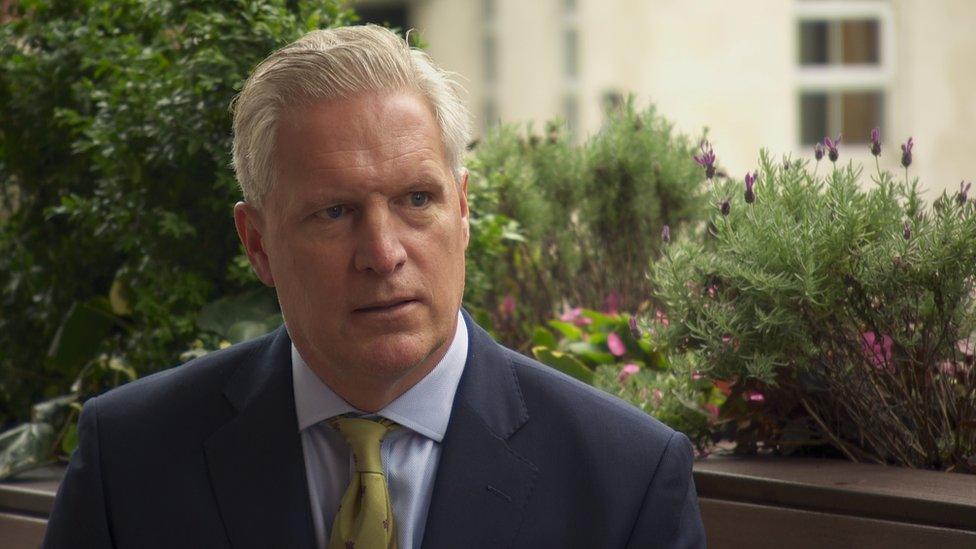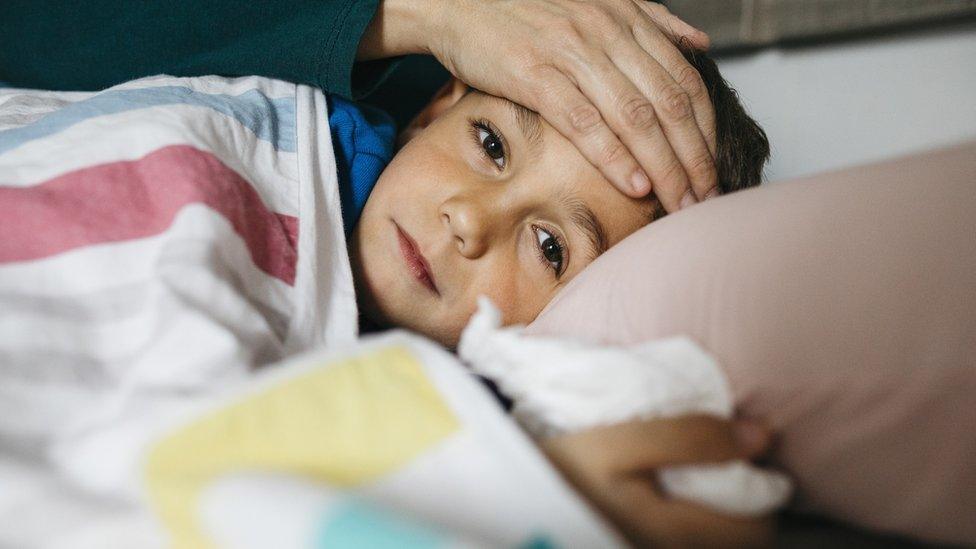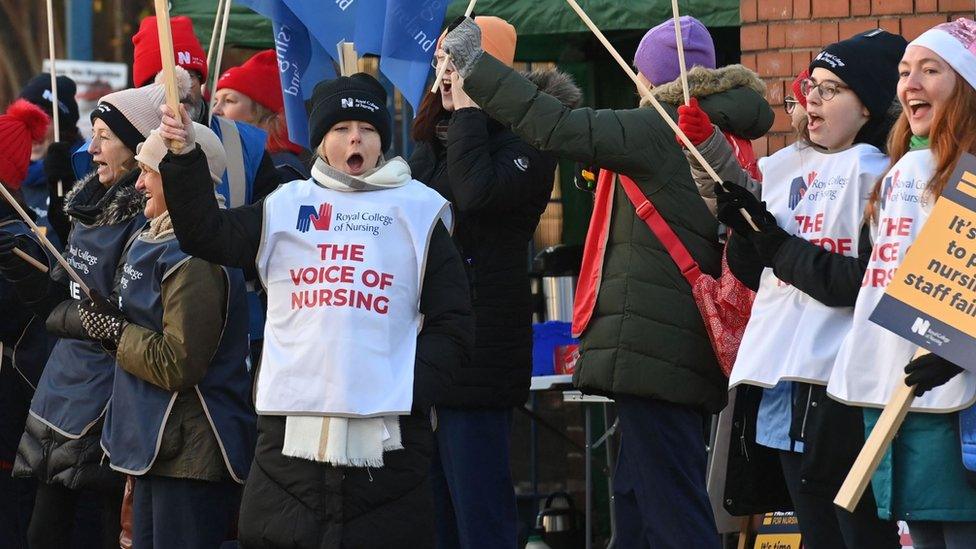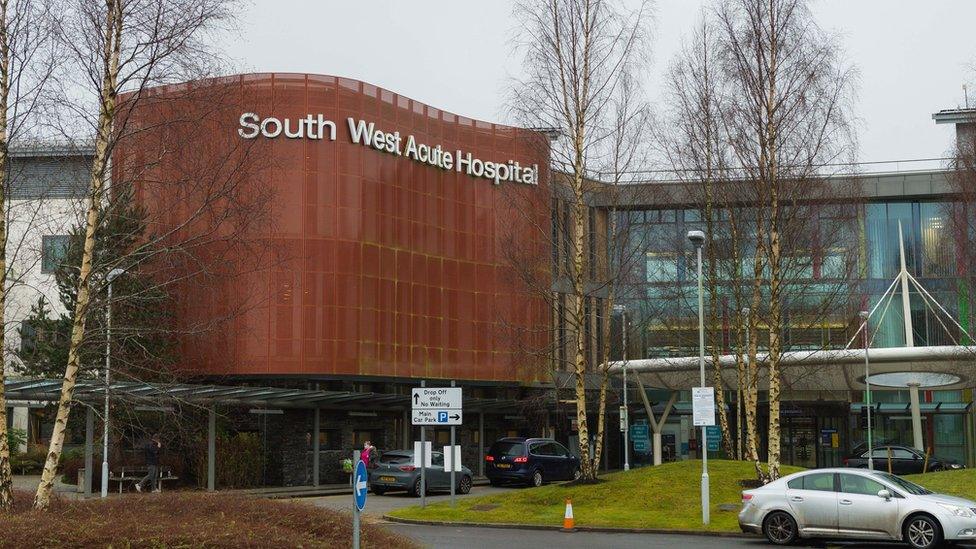Out-of-hours GPs struggle with hundreds of calls
- Published

Two GPs on out-of-hours cover faced a backlog of nearly 400 calls in Belfast by the early hours of Monday - a spike on the normal 10 calls, a senior doctor has said.
Dr Alan Stout, co-chair of the British Medical Association's GP committee, said there would have been "some very unwell patients among them".
Sunday night meant "huge and unsafe pressure" for those involved, he said.
He also warned of significant knock-on effects in GP practices on Monday.
The Department of Health said it remained concerned about the situation.
A spokesperson said the current increase in demand was mainly down to parents seeking advice on the need for antibiotics for children with "mostly minor" upper respiratory symptoms
'Harrowing stories'
In a tweet on Monday morning, Dr Stout appealed for people to be patient.
"We will try hard but it's not our fault," he said.
"We expect complaints and criticism."
Dr Stout told BBC NI's Good Morning Ulster programme that he had heard "harrowing stories" over the weekend.

Dr Alan Stout said there was an "utter inability" to deal with callers
"Anyone who is contacting a GP late on Sunday night is going to have a significant level of concern. We have huge sympathy," he said.
"There will be unwell people there and a complete and utter inability to deal with them."
In answer to his tweet on Monday, one woman said her daughter called Belfast out-of-hours at 22:50 GMT on Saturday.
Her call back came more than 14 hours later at 13:17 GMT on Sunday.
Allow X content?
This article contains content provided by X. We ask for your permission before anything is loaded, as they may be using cookies and other technologies. You may want to read X’s cookie policy, external and privacy policy, external before accepting. To view this content choose ‘accept and continue’.

Earlier this year, the British Medical Association warned almost 100 GP practices in Northern Ireland had sought emergency support or were in crisis.
Department of Health figures show that the number of GPs in Northern Ireland has risen by almost 20% since 2014.
In that same time period, the number of practices fell from 350 to 319.
A spokesperson from the Department of Health said the health trusts were trying to increase the number of staff who could work.
They added the most urgent calls would be given priority and that advice had been issued to prescribers about the prioritisation of antibiotics.

Early in December, a surge in cases of the Strep A infection led to added pressure
The pressures facing Northern Ireland's health service have been well documented - from overcrowded emergency departments and overstretched staff, to long waiting lists and busy GP surgeries.
Earlier in December, the BBC News NI was given access to the emergency department at Belfast's Royal Victoria Hospital.
Staff said they were treating the acutely unwell in areas which were "overcrowded and undignified" and a senior consultant likened the scenes to "battlefield" medicine.
In November, a senior manager at the Ulster Hospital in Dundonald said the pressure on hospital beds was "worse than it was during Covid".
The pressures on the service were further compounded by a surge in cases of the bacterial infection, Strep A, in Northern Ireland.
On one day in early December, a record 227 children attended the Royal Belfast Hospital for Sick Children, although it is not clear how many had Strep A.
Last week, nurses across Northern Ireland joined their colleagues in England and Wales in the largest NHS strike in its history.
The Royal College of Nursing said staff had been given no choice but to take strike action after ministers refused to reopen pay talks.
A further day of strike action is planned for Tuesday 20 December.
Related topics
- Published15 December 2022

- Published19 August 2022

- Published17 November 2022
